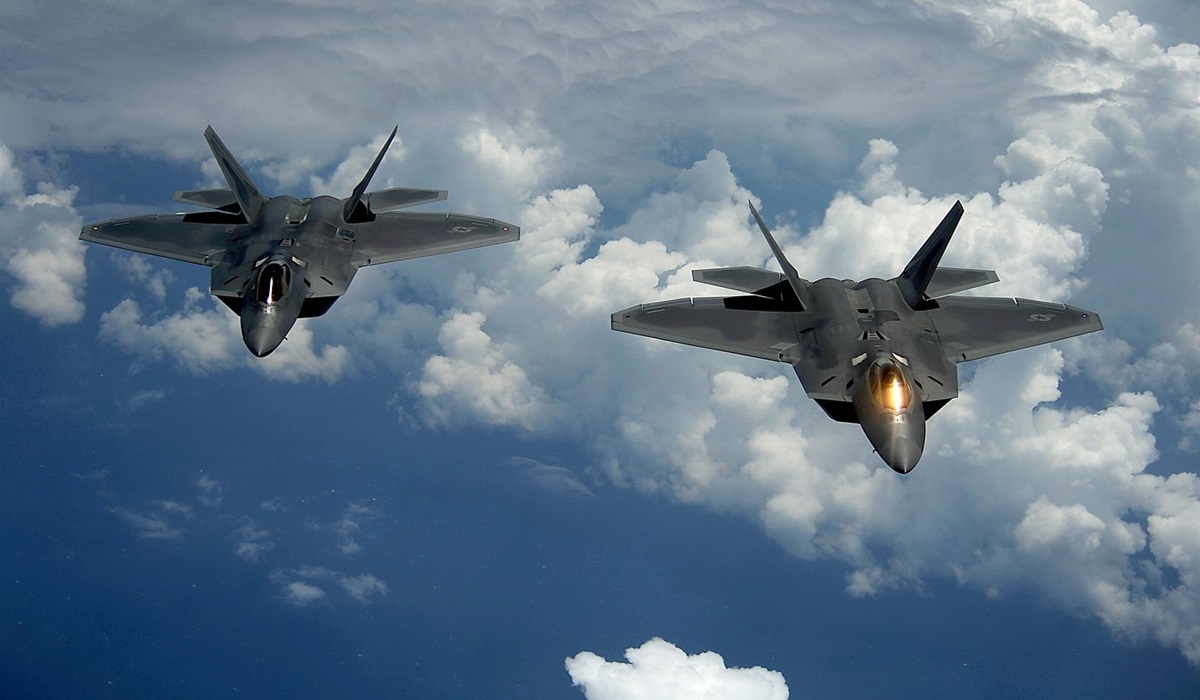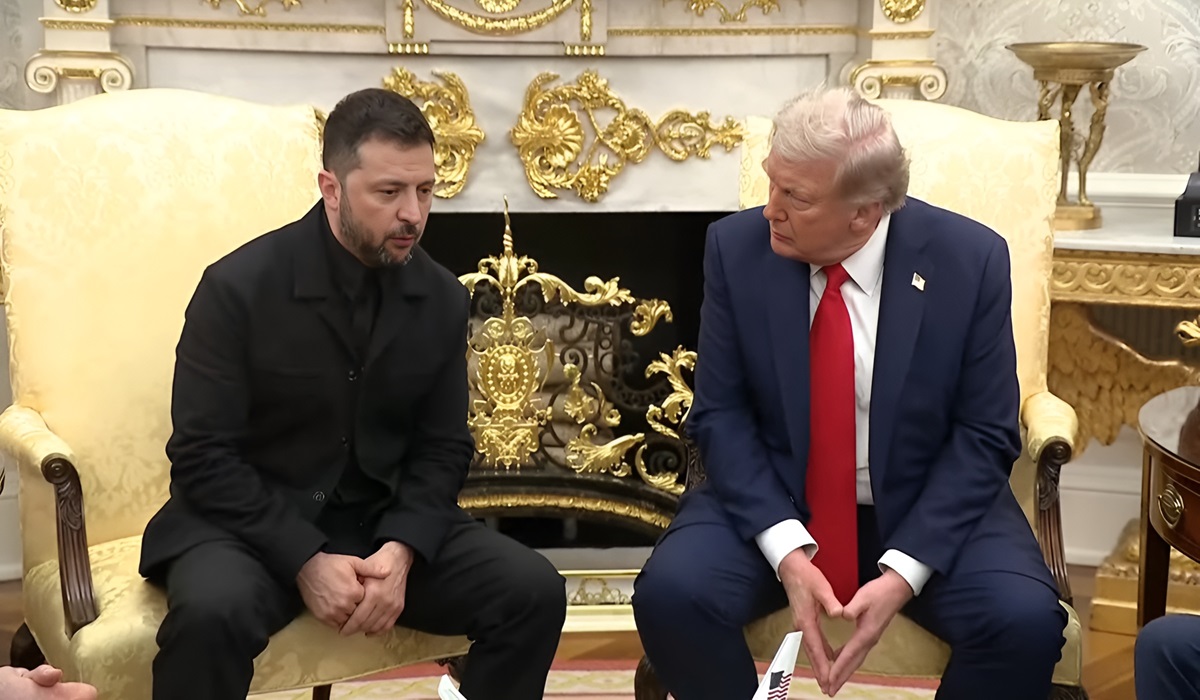The Real Winners of Trump’s “Big Beautiful Bill”: A Love Letter to the Military-Industrial Complex
- TDS News
- Breaking News
- July 1, 2025

When Donald Trump returned to office with swagger and spectacle, he wasted no time unveiling his so-called “Big Beautiful Bill”—a sweeping piece of legislation pitched as a patriotic surge to restore American greatness. But as the dust settles and the fine print becomes clear, the real winners are not the everyday Americans struggling to pay rent or buy insulin. Nor are they the veterans Trump has long claimed to champion. The undisputed victors? The billionaires behind America’s ever-bloated war machine: the defense contractors and the military-industrial complex that keeps feeding it.
At the center of this bill lies the most grotesque expansion of military spending in U.S. history. The Pentagon’s already astronomical budget—hovering around $1 trillion per year—is now slated to increase by another $150 billion. That’s right. The United States will soon be spending $1.5 trillion annually on defense. For context, that’s more than the GDP of all but a handful of nations. This isn’t just unnecessary—it’s obscene.
The U.S. military doesn’t fight wars anymore—it manufactures them. In fact, war is the product. Peace doesn’t generate revenue for Lockheed Martin or Raytheon. Stability doesn’t drive stock prices up for Northrop Grumman. Endless conflict does. Proxy wars in Ukraine, Gaza, and the Sahel region of Africa? That’s quarterly growth. Tensions with China over Taiwan? That’s market optimism.
The Bill essentially hands out blank checks to defense contractors—no serious accountability, no oversight. It’s a payoff in broad daylight. These companies, whose lobbyists and board members seamlessly transition between public office and private profit, have been entrenched in the bloodstream of American politics for decades. But Trump’s bill turbocharges their influence.
Let’s be clear: the U.S. is not a peacekeeping nation. It is a militaristic empire with over 800 military bases worldwide. That’s not defense—that’s occupation. From Okinawa to Djibouti, from Germany to Colombia, the U.S. military is planted like a global landlord, uninvited and often resented.
The bill justifies increased funding with hollow rhetoric about “security threats” and “global leadership.” But let’s call it what it is: fear-mongering as financial strategy. America has become addicted to militarism—not just as foreign policy, but as economic lifeblood. Without war, the system breaks. And the system is built for war.
Meanwhile, back home, the United States is crumbling. Nearly 40 million people live in poverty. Millions more are one missed paycheck away from homelessness. Opioid overdoses are killing Americans at rates higher than some wars. Tent cities sprawl across urban centers like dystopian ruins. Veterans—many of whom were sent to fight in wars of corporate interest—are left with substandard care, mental health crises, and broken promises.
Student loan debt continues to strangle a generation. The healthcare system remains a privatized labyrinth of price-gouging and gatekeeping. Teachers are underpaid, nurses are overworked, and essential workers are undervalued.
And yet, Trump’s bill offers them nothing but symbolic crumbs. There’s no meaningful investment in public health, no major policy to fight homelessness, no national strategy to deal with fentanyl or mental illness. The only prescription offered is more bombs, more bases, and more bullets.
Let’s not forget that the U.S. is still funneling billions to Israel, a nation currently accused by multiple human rights organizations of committing war crimes and ethnic cleansing in Gaza. The U.S. response? More funding. More weapons. More silence.
In Ukraine, America’s role as provocateur through NATO expansion and posturing has been whitewashed from mainstream narratives. Billions in military aid are shipped without audit, while Congress debates whether feeding children in U.S. schools is “fiscally responsible.”
In Africa and the Middle East, drone strikes, coups, and covert operations are the norm—not the exception. Each one enriches contractors and fuels the Pentagon’s demand for more. More arms. More vehicles. More surveillance. More war.
And while billions are being burned abroad, ICE is working overtime deporting the very people keeping large parts of America functioning: undocumented immigrants who work grueling hours picking crops, pouring concrete, staffing nursing homes, and cleaning hotel rooms. These are jobs most Americans won’t do, yet these workers are demonized and discarded as the administration boasts about “law and order.”
This isn’t just hypocrisy. It’s calculated cruelty. The bill says nothing of immigration reform, nothing of wage fairness or workers’ rights. It prioritizes tanks over teachers, missiles over minimum wage, and war over workers.
Trump, for all his populist posturing, just wrote a love letter to the war economy. His bill is a declaration—not of independence or strength, but of submission to the military-industrial complex. He didn’t just feed the beast; he made it king.
And let’s be real: this isn’t a partisan problem. Democrats have also bowed to defense interests for decades. Obama expanded drone warfare. Biden increased military aid to Israel. Clinton bombed Yugoslavia. There’s a reason why defense budgets go up regardless of who sits in the Oval Office. But Trump’s bill represents a new peak in the mountain of moral bankruptcy.
America is not just at war with the world—it’s at war with its own people. With every dollar sent to a defense contractor, that’s a dollar not spent feeding a child, housing a family, or curing a disease. The military doesn’t just defend borders—it defends a system designed to concentrate power, wealth, and control in the hands of the few, while everyone else fights over scraps.
The real winners of Trump’s “Big Beautiful Bill” are those who profit off death and destruction—billionaire CEOs, weapons manufacturers, and war profiteers who never set foot on a battlefield. And the losers? You already know them. They’re sleeping in cars, rationing insulin, working three jobs, or buried in student debt while the government tells them there’s just not enough money.
There is. We’re just spending it on war.








